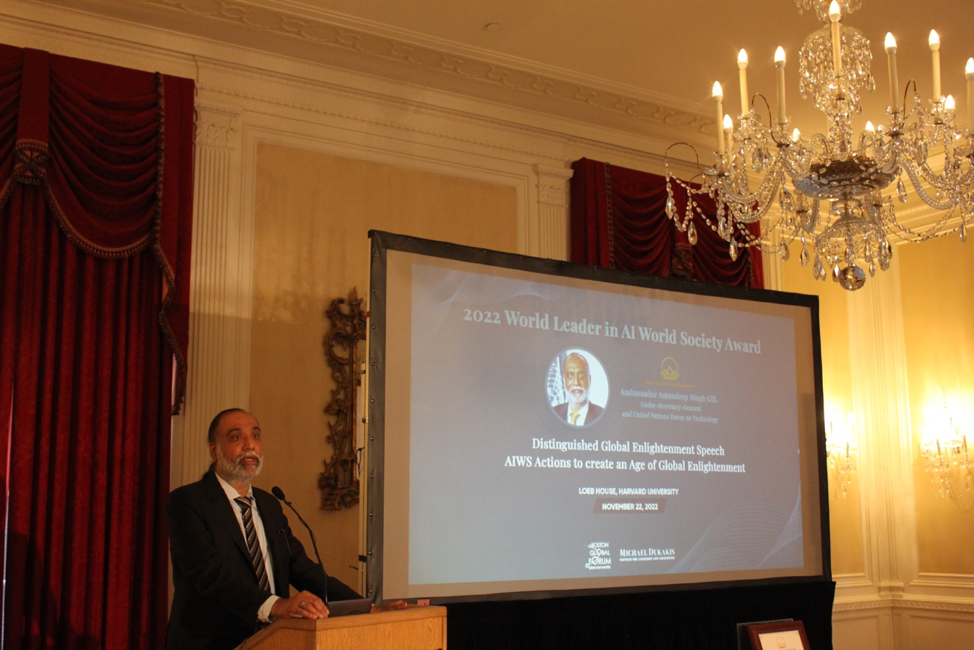
by Editor | Feb 12, 2023 | Global Alliance for Digital Governance
On February 8, 2023, Boston Global Forum and Global Alliance for Digital Governance announced concept notes for a Regulation Framework for ChatGPT and AI Assistants:
- Transparency: AI Assistants and ChatGPT should be transparent in their operations and decision-making processes, with the ability for individuals to understand and review the data and algorithms used.
- Accountability: There should be clear lines of responsibility and accountability for the actions and decisions made by AI Assistants and ChatGPT, and mechanisms for individuals to seek redress if they are affected by adverse outcomes.
- Privacy: AI Assistants and ChatGPT must protect the privacy of individuals and their data, and not misuse or disclose personal information without consent. This is elaborated further in the Social Contract for the AI Age.
- Bias and Discrimination: AI Assistants and ChatGPT should be designed and operated in a way that minimizes the potential for bias and discrimination, and actively works to eliminate it.
- Security: AI Assistants and ChatGPT must be designed with robust security measures to protect against hacking and other forms of cybercrime or loopholes.
- Ethical Use: AI Assistants and ChatGPT should operate in accordance with ethical principles. It is introduced in the 7-layer model of AI World Society (AIWS).
- Continuous Improvement: Regulations and laws for AI Assistants and ChatGPT should be flexible and adaptable, allowing for ongoing refinement and improvement in response to new developments and emerging flashpoints.
- International Cooperation: Given the global nature of AI technology, there should be international cooperation and coordination on regulations and laws for AI Assistants and ChatGPT, to ensure consistent standards and practices across borders with the Social Contract for the AI Age.
- Public Engagement: Regulations and laws for AI Assistants and ChatGPT should involve active public engagement and consultation, to ensure that the perspectives and needs of individuals and society are taken into account.
- Independent Oversight: There should be independent oversight bodies, such as regulatory agencies or watchdog groups, to monitor the deployment and use of AI Assistants and ChatGPT, and ensure compliance with regulations, laws, and principles. The Global Alliance for Digital Governance (GADG) is recommended as a watchdog institution.

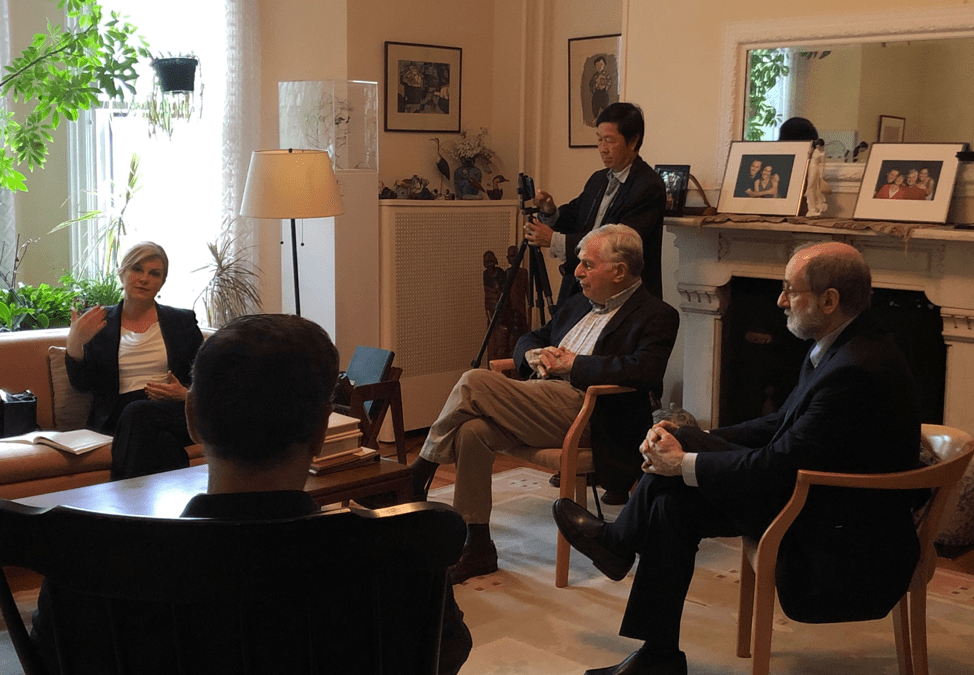
by Editor | Feb 5, 2023 | News
In 2020, the Boston Global Forum (BGF), under the leadership of Governor Michael Dukakis, launched concepts for an Age of Global Enlightenment based on AIWS (Artificial Intelligence World Society) and the United Nations Centennial Initiative. This launch marked the beginning of a new age in which technology and innovation will play a crucial role in shaping our future. One of the pillars is AIWS City, which has been designed to be a model for the Age of Global Enlightenment.
One of the key components of AIWS City is the usage of AI Assistants, such as ChatGPT, to support and enhance the daily activities of its residents. ChatGPT, developed by OpenAI, is an advanced language model trained on a massive amount of data to perform a wide range of tasks, from answering questions to generating creative writing. In AIWS City, ChatGPT is used as an AI Assistant to help citizens access information, automate tedious tasks, and provide valuable insights in real-time.
The integration of ChatGPT into AIWS City demonstrates the potential of AI to revolutionize our daily lives, improving efficiency and enabling new ways of learning and innovating. It also highlights the importance of responsible AI governance and ethical considerations, ensuring that AI is developed and deployed for the benefit of all.
AIWS City and the use of AI Assistants like ChatGPT are a testament to the Boston Global Forum’s commitment to creating a responsible and innovative future for AI, and the role that AI can play in building the Age of Global Enlightenment. Through this initiative, the BGF is demonstrating how AI can be leveraged to create a better future for all, and inspiring others to join in this effort.
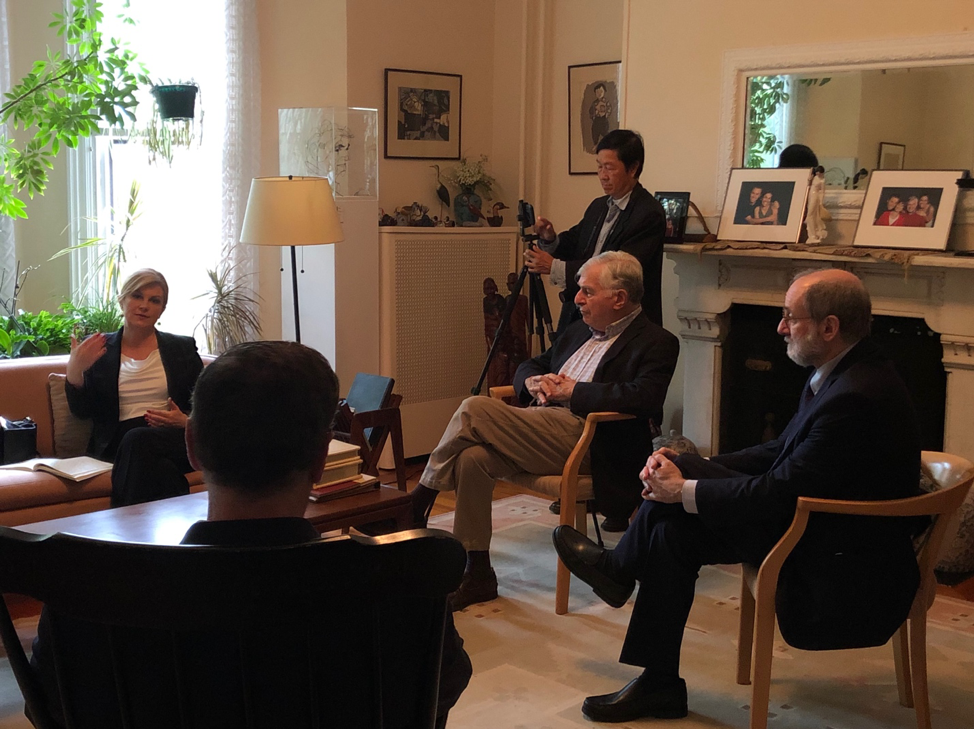

by Editor | Feb 5, 2023 | News
Vint Cerf, father of the Internet, World Leader in AIWS Award 2019 recipient, a distinguished contributor to Remaking the World – Toward an Age of Global Enlightenment, a Global Enlightenment Leader, and co-founder of the AIWS City, is honored by the IEEE.
The IEEE has announced that Vint Cerf is the recipient of the 2023 IEEE Medal of Honor. He is being recognized: “for co-creating the Internet architecture and providing sustained leadership in its phenomenal growth in becoming society’s critical infrastructure.”
Considered the highest honor in the field of Electrical Engineering, the IEEE Medal of Honor was inaugurated in 1917 and is awarded annually to a single recipient for exceptional contributions or an extraordinary career in the IEEE fields of interest. Vinton G. Cerf is this year’s laureate.
https://spectrum.ieee.org/2023-ieee-medal-of-honor

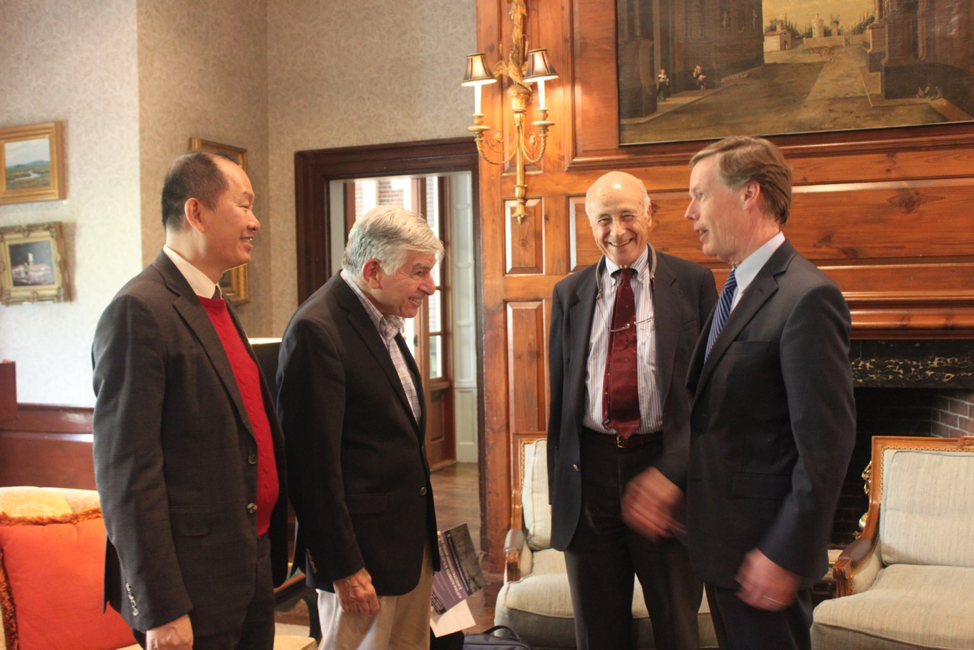
by Editor | Feb 5, 2023 | Global Alliance for Digital Governance
Boston Global Forum, Boston, February 6, 2023
The Boston Global Forum (BGF) and the Global Alliance for Digital Governance (GADG) are dedicated to proactively addressing the risks and challenges posed by AI in our daily lives. As leading organizations in technology and academia based in Boston, Massachusetts, we understand the significance of shaping the responsible growth and implementation of AI, including AI Assistants like ChatGPT.
Building on the 7-layer model of AIWS and Social Contract for the AI Age proposed by BGF in the AIWS – G7 Summit Initiative of 2019, we are now collaborating closely with AI Assistants to manage and minimize their potential risks. Through our collaboration with the United Nations Centennial Initiative and the launch concepts of the Age of Global Enlightenment in 2020, we aim to utilize our resources to create responsible AI policies and regulations through the AI International Accord. BGF and GADG are determined to play a key role in shaping a responsible and equitable future for AI.
GADG will organize a series of high-level dialogues about ChatGPT and AI Assistants and will engage with governments of the US, Europe, Japan, India, South Korea, Canada, Australia, and the United Nations Global Digital Compact. We will encourage AIWS city innovators to contribute to and practice GADG’s recommendations. BGF will also contribute to the upcoming Summit of the Future of the United Nations scheduled for September 2024.

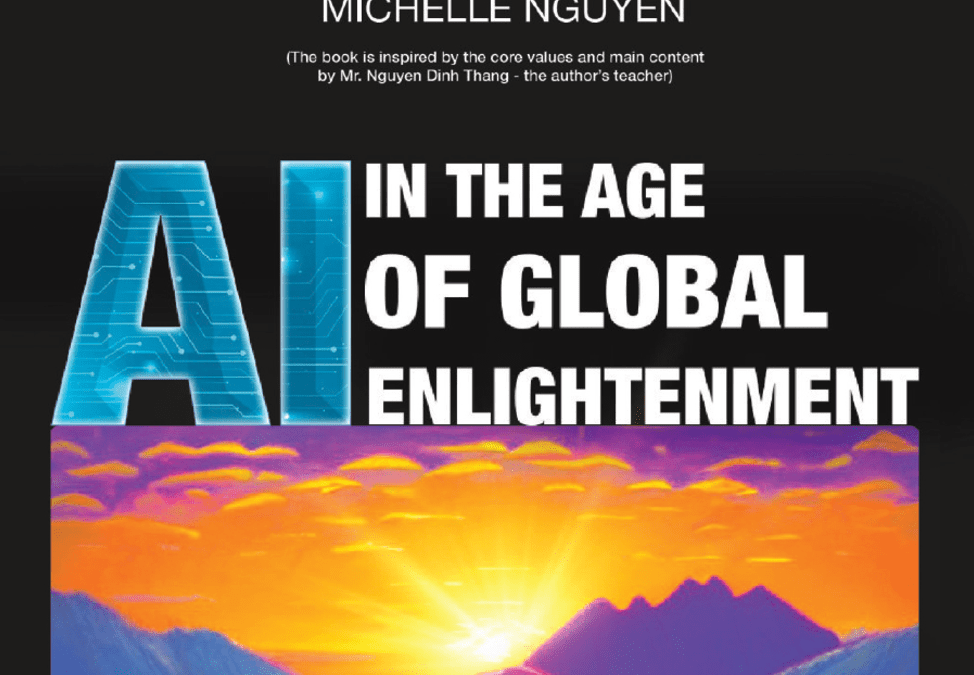
by Editor | Feb 5, 2023 | Event Updates
The book “AI in the Age of Global Enlightenment” is a captivating story that delves into the integration of artificial intelligence into our society. The fast pace of technological advancements and the increasing impact of AI on our daily lives make it imperative to contemplate the ethical and societal ramifications of this evolving field.
The author, Michelle Nguyen, draws on ideas and concepts from the book “Remaking the World – Toward an Age of Global Enlightenment,” edited by Nguyen Anh Tuan, CEO of the Boston Global Forum (BGF) and published by BGF and United Nations Academic Impact in July 2021. The key character in the book is AI Xachari, a robot with the capability to self-learn, feel, and act like humans while yearning to experience human happiness. With a goal to serve humankind’s happiness, AI Xachari meets the scientist who created the flawed AI, Balaam. The two discuss the Social Contract for the AI Age, aimed at ensuring the transparency of AI algorithms and holding AI creators accountable for their systemic impact. The scientist then upgrades Balaam, incorporating the Cyber Security Mesh Architecture and other advanced technologies, turning it into a cybersecurity expert for the AI Government.
This book offers a thought-provoking and imaginative portrayal of the relationship between AI and society, proposing a future where both can coexist in harmony and balance. Through AI Xachari and the scientist, the book demonstrates how we can utilize advanced technologies to create a better world, guided by principles of transparency, accountability, and the ethics outlined in the Social Contract for the AI Age.
The book launch event on February 25, 2023, featuring Mr. Nguyen Anh Tuan as the keynote speaker, is eagerly awaited. It provides readers with an opportunity to gain deeper insights into the book’s themes and engage in a dialogue about the future of AI and its role in fostering the Age of Global Enlightenment.
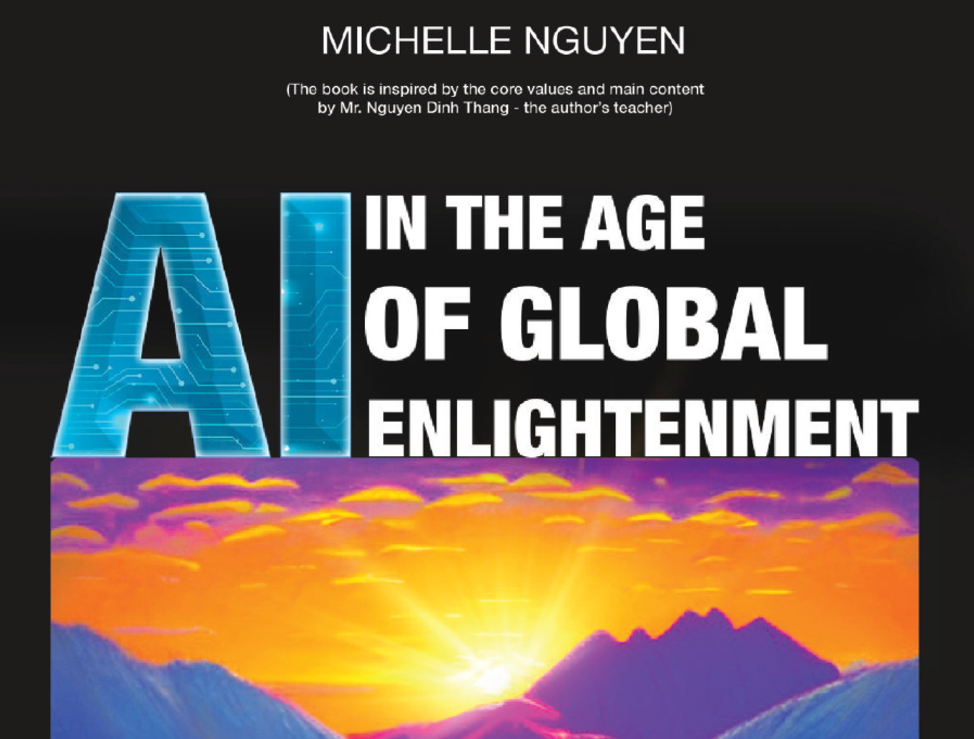
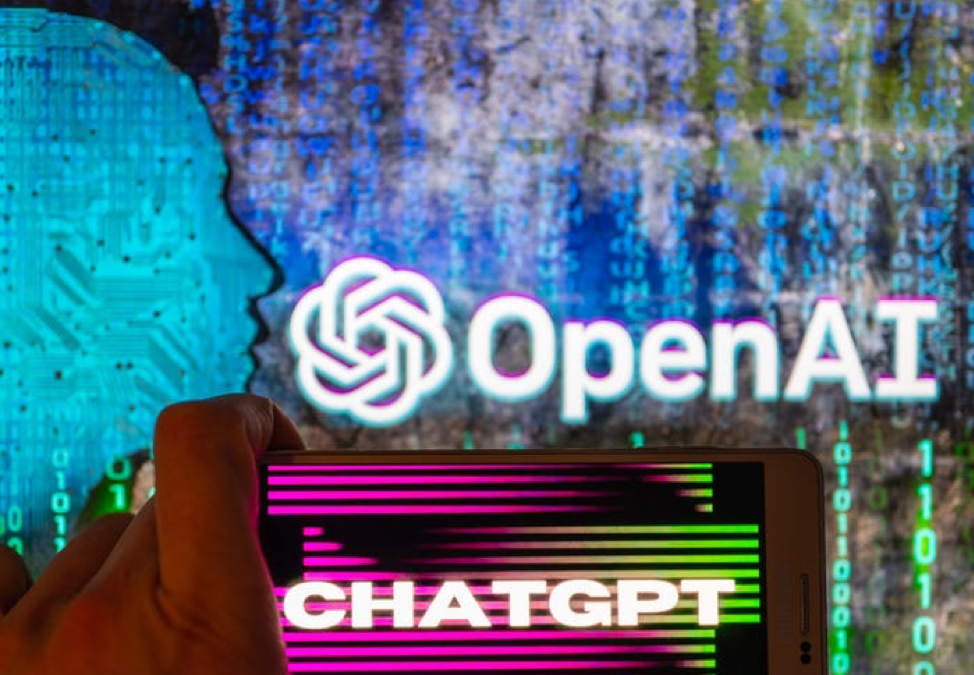
by Editor | Jan 29, 2023 | News
AIWS City has recently recognized ChatGPT as one of significant impactful advancements in the History of AI 2022. The recognition took place at the History of AI House, a museum dedicated to preserving the legacy of AI and showcasing its evolution over time.
ChatGPT, developed by OpenAI, is a state-of-the-art language model that has been trained on a vast amount of text data. Its ability to generate human-like responses and carry out natural language processing tasks has made it a popular tool among researchers, businesses, and individuals alike.
The museum’s recognition of ChatGPT highlights its significance in the field of AI and its impact on the way we interact with technology. The model’s ability to understand and generate human-like responses has revolutionized the field of natural language processing and has opened up new avenues for innovation.
In addition to its applications in conversational AI, ChatGPT has also been used in various other industries, including finance, healthcare, and education. The model has demonstrated its ability to handle complex tasks and has been integrated into a wide range of applications, from customer service chatbots to advanced language translation systems.
The recognition of ChatGPT in the History of AI House at AIWS City serves as a reminder of the incredible advancements that have been made in the field of AI and its potential to continue shaping our future. As AI continues to evolve, we can expect to see more developments in the years to come, and ChatGPT is an AI Asistant model of Social Contract for the AI Age and AIWS.
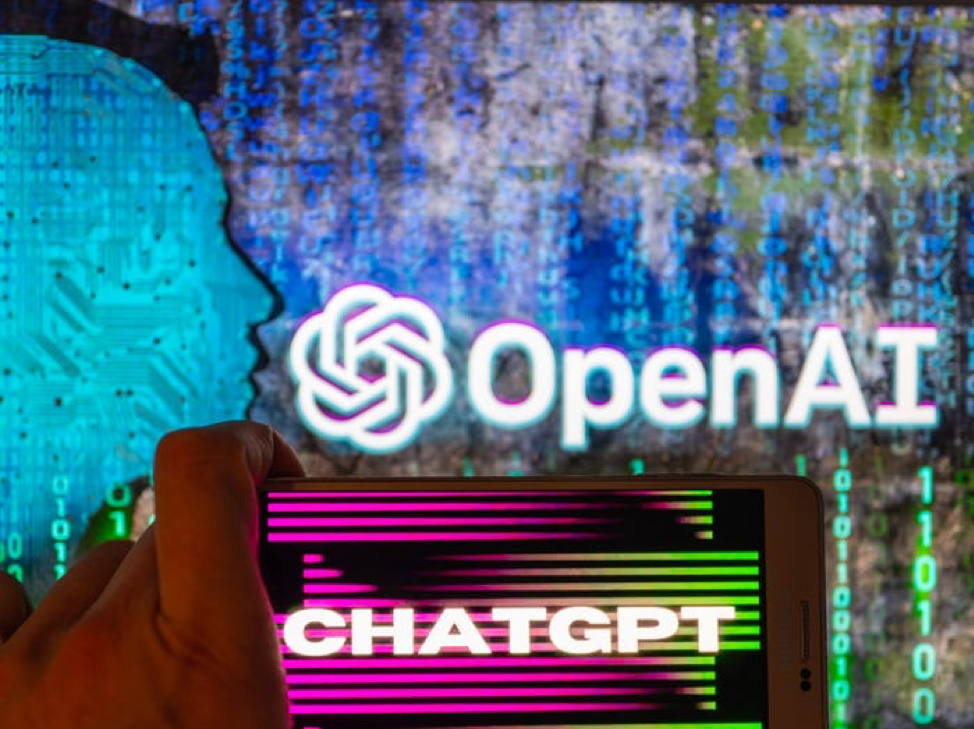
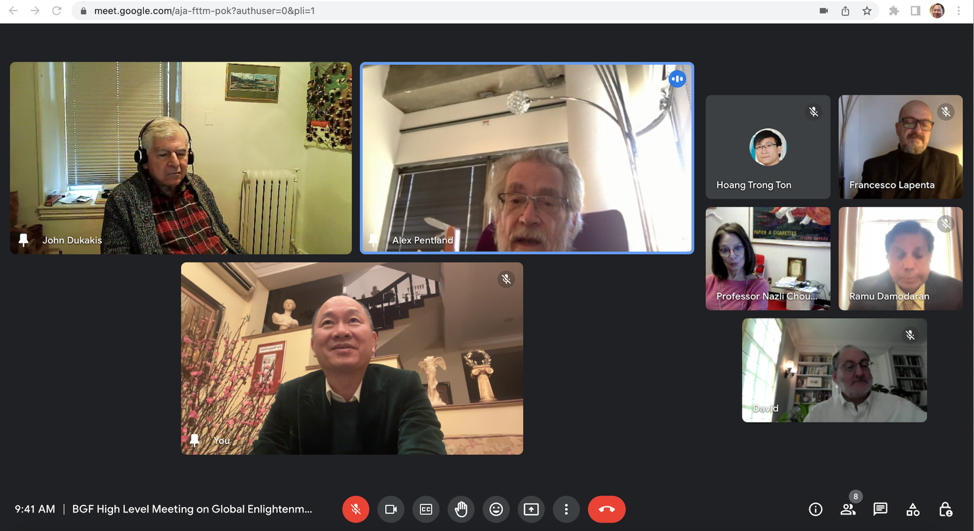
by Editor | Jan 29, 2023 | News
On January 27, 2023, leaders of the Boston Global Forum (BGF) gathered to prepare events to celebrate the 90th birthday of Governor Michael Dukakis (November 3, 1933), the co-founder and chairman of the BGF. As we honor Governor Dukakis’s contributions to public service and leadership, we also recognize the opportunity to take meaningful action to create an Age of Global Enlightenment.
The Age of Global Enlightenment is a vision for a more inclusive, sustainable, and equitable future, where economic growth and development serve the needs of all people. At its core, it is based on the principle that economic prosperity should be shared and that economic systems should be designed to promote the well-being of all citizens.
One important aspect of the Age of Global Enlightenment is the responsible and ethical use of artificial intelligence (AI). The BGF, under Governor Dukakis’s leadership, has been at the forefront of efforts to shape the responsible and ethical use of AI. The BGF has called for the creation of an AI World Society (AIWS), which will bring together governments, the private sector, civil society, and other stakeholders to develop global standards and best practices for the responsible use of AI.
Another important aspect of the Age of Global Enlightenment is the promotion of green growth and sustainable development. The BGF has recognized the urgent need to transition to a low-carbon economy and to develop renewable energy sources. It also stresses the importance of preserving and protecting the natural environment, and of promoting sustainable agricultural and fisheries practices.
The Age of Global Enlightenment also seeks to promote greater economic inclusion, particularly for marginalized groups such as women, youth, and persons with disabilities. The BGF has called for the promotion of equal opportunities and the elimination of discrimination in the workplace. It also calls for the development of policies and programs to support the economic empowerment of marginalized groups.
As we celebrate Governor Dukakis’s 90th birthday, let us honor his legacy by taking meaningful action to create an Age of Global Enlightenment. We call on governments, the private sector, civil society, and other stakeholders to work together to create a more inclusive, sustainable, and equitable future for all.
In the words of Governor Dukakis, “We must work together to build a world in which all people can live in peace, dignity, and security, a world where economic growth and development serve the needs of all people, not just the privileged few.”

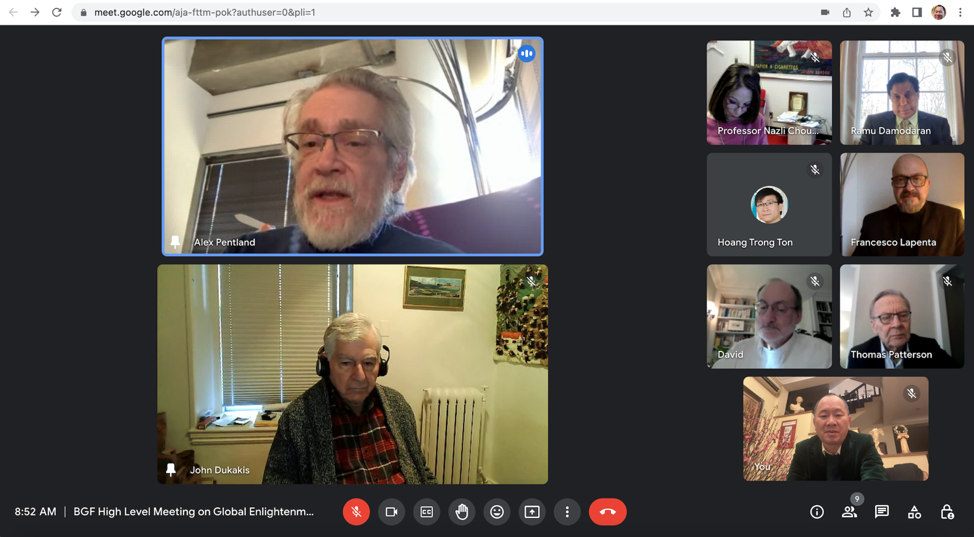
by Editor | Jan 29, 2023 | Event Updates
On January 27, 2023, the Boston Global Forum organized the BGF conference on Global Enlightenment Economy.
MIT Professor Alex Pentland, a Distinguished Contributor of “Remaking the World – Toward an Age of Global Enlightenment”, was a keynote speaker.
In Alex Pentland’s talk, he discussed the importance of a data Commons to achieve the United Nations Centennial Initiative and UN sustainable development goals. The data Commons is a census of the world, not just a single country, that includes information on people, economics, social conditions, inequality, and pollution. Progress on the data Commons has been slow, but there is potential for a trillion dollars in tax avoidance to be addressed by cross-border trade data sharing. Pentland also emphasized the importance of modern data-driven social programs and tax programs to help address tax avoidance, with the software being open source and common. He used the example of Estonia’s blockchain transparency system for VAT, which increased revenue by 15% and citizen satisfaction even more. The data Commons and common protocols for cross-border trade are essential for reducing tax avoidance and improving knowledge of communities.


by Editor | Jan 29, 2023 | Global Alliance for Digital Governance
Bao Tran, The Representative of Boston Global Forum in Silicon Valley, USA
In order to ensure that human creators’ rights are protected in the context of developing and implementing artificial intelligence, there should be a clear understanding of the rights and responsibilities that such a system has. It is also important to create an oversight body that is independent from the public authorities and is tasked with promoting the knowledge and understanding of AI and human rights as the Global Alliance for Digital Governance.
Do’s
When human creators work with an AI system, the end results can be impressive. But how does it work? Some of the best practices in the field suggest a few things to keep in mind.
First, it’s important to know what you’re working with. The more you can identify the needs and priorities of the people who will be affected, the better off you’ll be.
You’ll want to be careful with the data you feed to an AI model, too. Having a lot of it can lead to the wrong type of results. In some cases, this can create ethical dilemmas. Using AI to generate content can also open up new copyright and legal complications.
To illustrate this, consider the following example. A company called Stitch Fix recently started experimenting with a tool called DALL-E 2. This is a program that takes an image from Google Search, applies machine learning techniques, and creates an illustration of a clothing item.
Another way to think about this is to imagine a hypothetical robot. While the image is technically not produced by an AI, it does use a complex machine learning algorithm to generate the image.
Although it’s not necessarily easy to make the case for a purely AI-generated image, there are some perks. For instance, they can be more diverse than the human-produced version. There’s also a chance they’re a bit better quality.
Ultimately, the most important thing to remember is that a model will only perform the feats it’s trained for. So, if you’re building an AI system, it’s important to give users a lot of input. Not only will this help make your AI system more intuitive, it will also make the process more transparent.
Other tips to keep in mind include focusing on the most effective results and letting the system do its job. As AI continues to grow in power, it’s important to think about how to mitigate its pitfalls. Consider use of IP laws to help.
Lastly, the best thing to do is to make a well-constructed, comprehensive AI policy that covers all aspects of the program. From the data used to train the software to the way in which the results are delivered, it’s important to understand what’s at stake and to find a way to manage it.
Don’ts
Whether it’s an automated system or an augmented human, it’s clear that artificial intelligence is pervading our daily lives. But as the tech advances and the algorithms get more and more complex, developers need to focus on how their efforts are actually delivering results. And a lot of the time, the results can’t be measured in a single number.
One example is a clever gizmo that will help you get on the road. The European Union has proposed requiring companies to provide a formal explanation of their automated decisions. Other examples include the use of natural language processing and analytics, such as IBM’s Watson which won the US quiz show Jeopardy! Interestingly, these technologies are not without their own drawbacks. For instance, the systems are often haphazardly deployed, leading to a disproportionate misidentification of Black people by facial recognition technology.
There are also notable exceptions, such as the Google AI strategy. The company is making efforts to help artists create transformative works, such as a “transformable” image which can be manipulated and repurposed for other purposes. Similarly, Adobe recently announced guidelines for generative art submissions. In the process, they’ve released a tool called DreamUp which allows users to make a more informed decision about whether or not a particular piece of artwork is a computer generated masterpiece.
Another noteworthy piece of software is Playform, a video game that lets you play a game in the cloud. Many users have reported some interesting results, such as signature gestures and signature colors. Somewhat surprisingly, a lot of these effects are not well explained, which is a shame.
Perhaps it’s time to stop relying on computers to do the dirty work, and start looking to artists and designers to create new and innovative works of art. If you’re an artist, check out the following list of AI-based resources. They’re all free and open to the public. You can even mint your own NFTs from the models! With this technology at your fingertips, you can now create an interactive experience that is akin to creating art by hand.
Promote knowledge and understanding of AI and human rights
Promoting knowledge and understanding of AI and human rights is a key aspect of the international community’s efforts to ensure that human rights are not undermined by the technology. It is crucial to identify and mitigate the risks that the technology poses, while at the same time supporting its uses to promote sustainable development, and to respond to difficult problems.
In the past few years, the international community has engaged in consultations with experts from across the globe. This has led to a number of concrete recommendations. These recommendations focus on 10 areas of action to address the impact of AI.
In the context of humanitarian aid, AI is likely to play an important role. However, it is also likely to pose unique risks to human rights. As such, it is imperative that it is used in a way that is respectful to the human rights of affected persons and to the environment.
AI and human rights education should reach a broad spectrum of audiences. In addition to reaching those with limited IT literacy, it is important to make sure that all participants in the design, implementation, and use of AI systems are informed about the risks and vulnerabilities of the technology.
Self-assessment of an AI system’s potential human rights impacts should be carried out prior to development and implementation. This assessment should be based on a thorough review of the system’s purpose, the context in which it is intended to operate, and its potential human rights implications.
A meaningful external review of an AI system should be conducted at regular intervals. This should include an evaluation of the algorithms behind the system, the way in which the decision-makers influence inputs, and the human control over the system. Such an assessment should take place in an open and transparent manner.
Relevant oversight bodies should be established to monitor the impact of AI on human rights and to investigate violations of human rights. They should have adequate resources and appropriate training to carry out their duties.
In order to operationalize the human rights framework, there is a need for capacity building in both the public and NGO sectors. This is especially necessary to address the challenges of human rights oversight in the context of AI.
Oversight bodies should be independent of public authorities
If you are thinking about investing in artificial intelligence, or if you are a creative individual or company, you probably want to know what kind of legal protection you can expect from your work. Copyright law has been a major factor in protecting the intellectual property of creative works. However, there may be an exception for artificial intelligence. Some say that if an AI system has been created from a human work, it may be considered free of copyright, which could mean that the work would be freely distributed.
This may be a good thing for the public at large, because it would allow individuals and companies to keep investing in the technology. However, it would also allow the system to be easily manipulated, which could make the technology less accurate and effective. In addition, a free-of-copyright work means that anyone can use it, regardless of the creator, without paying anything to the author. It would also be a bad deal for the companies that create the work.
Despite this potential benefit, it seems as though the copyright model is the best way to protect the rights of the creators of an artificial intelligence system. If the work is able to be freely distributed, it could be argued that the creator is not protected, and that the originality standards are being violated. However, it is important to note that the current trend of lowering the thresholds for originality could have negative consequences for those who create works.
The Global Alliance for Digital Governance (GADG), established through a collaboration of the Boston Global Forum and the World Leadership Alliance-Club de Madrid at the Policy Lab on September 7-9, 2021, is an excellent instrument for this mission.













